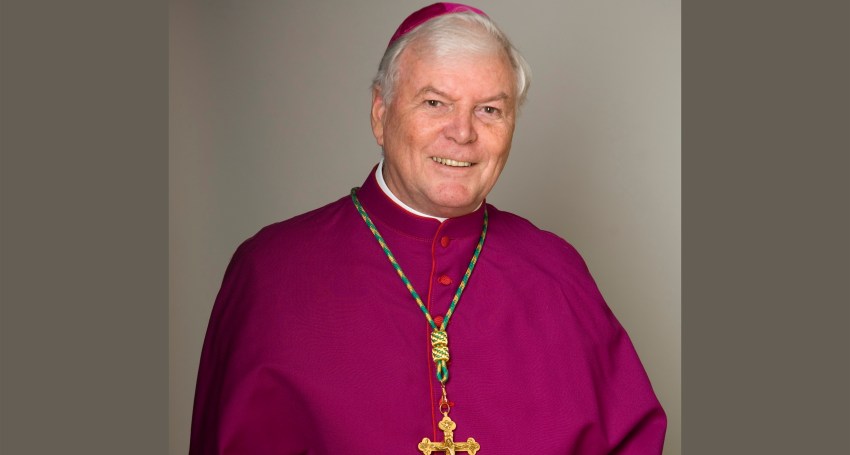Life is a gift that God gives forever
Opinion
Pope Francis has asked us to look at life issues in a holistic way, as a total perspective. It comes out of Our Lord’s words: ‘I have come that you may have life and have it to the full’. Pope Francis says that the Christian attitude to life must embrace everything from conception to natural death. And so it covers actions like abortion; it covers actions like capital punishment. It’s odd to be opposed to abortion and yet support capital punishment; there’s a contradiction there.

This Christian overall outlook on this issue also includes in its scope the poor and the vulnerable – those who haven’t got enough in order to have a proper human life. The Christian attitude to life also covers the environment, the Pope says, because we must not destroy that which gives us life. It covers the end of life as in the need for palliative care rather than euthanasia. This is the Christian attitude to all of life – we just don’t isolate abortion and speak about it by itself. It’s part of a whole framework of how the Christian regards life as a gift of God. As Saint Pope John Paul II said: ‘Life is a gift that God gives forever’.
Advertisement
We have now a bill being proposed in our Parliament by Tammy Franks, the Greens Member of the Legislative Council. This bill aims to remove all laws around the ending of the life of pre-born babies. And to be quite clear, if passed, the amendment will mean that pre-born babies may be terminated up to birth for no medical reason. And under these proposed laws termination does not require a doctor’s approval, or the involvement of a doctor in the abortion process.
Current conscientious objection protections for doctors and nurses are removed. This amounts to an attack on the religious freedom of dissenting medical professionals.
In her speech in Parliament Tammy Franks made various statements such as the claim that abortion causes no psychological harm to the mother. In fact, she states, many mothers then have a sense of relief after an abortion. That just runs counter to the experience of people who have dealt with the women who have had to suffer this and have had to make terrible choices.
Abortion is described by her simply as a medical procedure, of no moral consequence. It’s just like another surgical act. She quotes some groups advocating abortion who say that abortion should take place under any circumstance and at any time, even though we know that a baby is viable at 20 to 22 weeks. And this law would make it possible for abortions right up into the ninth month. That is how drastic it is – a fully formed human being about to be born.
It is something about which we must contact our local Member. They may not be alert themselves. But this is an extraordinary proposal coming from Tammy Franks as simply a health issue for women. It runs counter to everything we hold sacred. ‘I have come that they might have life and have it to the full.’
The unborn deserve love, not destruction, and in Tammy Franks’ speech there is nothing of love expressed towards the unborn. In the words of the Prophet Jeremiah: ‘Before I formed you in the womb I knew you. Before you came to birth I consecrated you.’
Advertisement
This outlook of reverence and tenderness must also influence how we act towards women grappling with this terrible choice, what we might do to support them in their efforts to protect the life they carry. Such women are in great need, emotionally and psychologically and spiritually and we as Christians must look to how we might help women in such a situation.
We must always reflect the gentleness of Christ, the way he treated the woman taken in adultery for example, when He knelt next to her and asked: ‘has no one else condemned you?’
It would be normal for women seeking abortion to be afflicted by the terrible decision they are making, one that defies their nature, and while the act is abhorrent and wrong, charity and sensitivity and awareness of suffering must shape the style of our response.
It would be most appropriate for everybody to talk to their local Member of Parliament and beg them not to pass such a law. And we say this in the context of the meaning of love. Love is patient and kind as St Paul wrote; love is gentle; love is not boastful; and love never comes to an end.
An edited extract from the homily preached for the Fourth Sunday in Ordinary Time by Bishop Greg O’Kelly SJ, Apostolic Administrator Adelaide Archdiocese and Bishop of Port Pirie Diocese, in St Francis Xavier’s Cathedral.








Comments
Show comments Hide comments